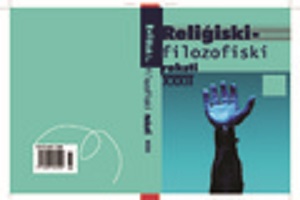Reliģiska un ateistiska neiecietība – demokrātiskās sabiedrības problēma
Religious and Atheistic Intolerance as a Problem to Democratic Society
Author(s): Arnis MazlovskisSubject(s): Politics and religion, Social Theory, Sociology of Culture, Sociology of Religion
Published by: Latvijas Universitātes Filozofijas un socioloģijas institūts
Keywords: Tolerance; religious excesses; freedom of expression; anti-religious propaganda;
Summary/Abstract: Toleration designates a willful permission for rival groups, beliefs, and practices to persist and function. In the ancient world, the diversities of views and social position were harmonized by virtue of patriotism and confidence in truth accessibility. Nicolaus of Cusa may be considered the first protagonist for religious toleration after the Middle Ages. He presumed that an evangelical core was present in all religions. He maintained the ancient conviction in just one wisdom. Jean Bodin, the next propagandist of toleration, argued that religions were incapable of epistemic claims therefore their doctrinal content should be minimized while ethics of coherence and mutual respect strengthened. For the development of liberal ideas, the contribution of John Locke is important. According to him, the secular power should be distinguished from religion. The State has no right to use force concerning faith. Men’s conviction cannot be changed by violence. The Church is a voluntary society persisting and propagating by persuasion. The principle aim of everyone should be civil peace. The anthropocentric approach to social values was further developed during the French Enlightenment. For example, Voltaire wrote that all people should be considered our brethren. They who can make men believe in absurdities can make them commit atrocities. A relevant historical example of state tolerance is the rule of the Indian emperor Asoka. In a heterogeneous society he prescribed temperance and granted freedom to religious dissidents.
Journal: Religiski-filozofiski raksti
- Issue Year: XXXII/2022
- Issue No: 1
- Page Range: 53-67
- Page Count: 15
- Language: Latvian

